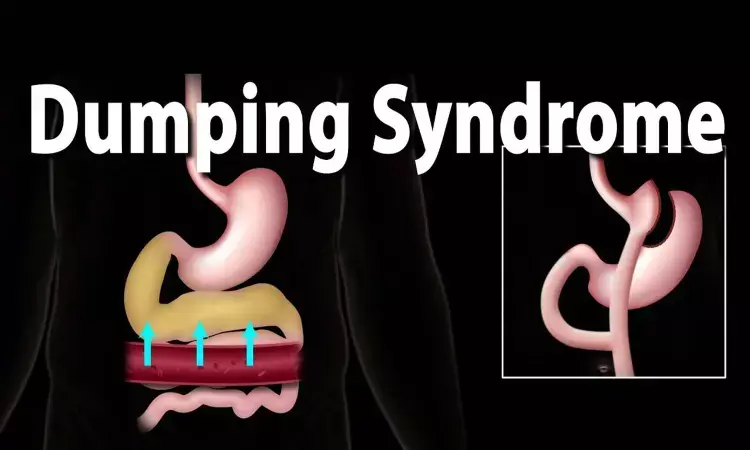- Home
- Medical news & Guidelines
- Anesthesiology
- Cardiology and CTVS
- Critical Care
- Dentistry
- Dermatology
- Diabetes and Endocrinology
- ENT
- Gastroenterology
- Medicine
- Nephrology
- Neurology
- Obstretics-Gynaecology
- Oncology
- Ophthalmology
- Orthopaedics
- Pediatrics-Neonatology
- Psychiatry
- Pulmonology
- Radiology
- Surgery
- Urology
- Laboratory Medicine
- Diet
- Nursing
- Paramedical
- Physiotherapy
- Health news
- Fact Check
- Bone Health Fact Check
- Brain Health Fact Check
- Cancer Related Fact Check
- Child Care Fact Check
- Dental and oral health fact check
- Diabetes and metabolic health fact check
- Diet and Nutrition Fact Check
- Eye and ENT Care Fact Check
- Fitness fact check
- Gut health fact check
- Heart health fact check
- Kidney health fact check
- Medical education fact check
- Men's health fact check
- Respiratory fact check
- Skin and hair care fact check
- Vaccine and Immunization fact check
- Women's health fact check
- AYUSH
- State News
- Andaman and Nicobar Islands
- Andhra Pradesh
- Arunachal Pradesh
- Assam
- Bihar
- Chandigarh
- Chattisgarh
- Dadra and Nagar Haveli
- Daman and Diu
- Delhi
- Goa
- Gujarat
- Haryana
- Himachal Pradesh
- Jammu & Kashmir
- Jharkhand
- Karnataka
- Kerala
- Ladakh
- Lakshadweep
- Madhya Pradesh
- Maharashtra
- Manipur
- Meghalaya
- Mizoram
- Nagaland
- Odisha
- Puducherry
- Punjab
- Rajasthan
- Sikkim
- Tamil Nadu
- Telangana
- Tripura
- Uttar Pradesh
- Uttrakhand
- West Bengal
- Medical Education
- Industry
Dumping Syndrome- International consensus on management released

International consensus on the diagnosis and management of dumping syndrome has been released and published in the journal Nature Reviews Endocrinology. To date, there are no established guidelines on the diagnosis and management of dumping syndrome, hence an international he Consensus Group organized a Delphi consensus process to provide guidance to clinicians, and identify areas requiring future research.
Dumping syndrome is a common but underdiagnosed complication of gastric and oesophageal surgery. The prevalence of dumping syndrome depends on the type and extent of surgery, and on the criteria used to diagnose dumping syndrome. Dumping syndrome occurs in approximately 20% of patients undergoing vagotomy with pyloroplasty, in up to 40% of patients after Roux-en-Y gastric bypass (RYGB) or sleeve gastrectomy and in up to 50% of patients undergoing oesophagectomy. These interventions change gastric anatomy and innervation, which can enable a considerable amount of undigested food to reach the small intestine too rapidly.
Typically, symptoms of early dumping syndrome occur within the first hour after a meal and include gastrointestinal symptoms (abdominal pain, bloating, borborygmi, nausea, and diarrhea) and vasomotor symptoms (flushing, palpitations, perspiration, tachycardia, hypotension, fatigue, desire to lie down and, rarely, syncope)
Main recommendations include-
- Dumping syndrome is a complication of oesophageal or gastric surgery that can comprise both early and late dumping syndrome symptoms
Early dumping syndrome is the typical and most frequent manifestation of dumping syndrome and can occur in isolation or in association with late symptoms
Dumping syndrome affects the quality of life and can be associated with weight loss
Symptoms of early dumping syndrome are driven by rapid delivery of nutrients to the small bowel, which triggers the release of several gastrointestinal hormones, including vasoactive agents, incretins and glucose modulators
Hypoglycemia is the main symptom of late dumping syndrome and is driven by a hyperinsulinaemic response and GLP1 release
Dumping syndrome can contribute to weight loss after bariatric surgery
Dumping syndrome should be suspected based on the clinical history, but currently, available dumping questionnaires have no proven diagnostic value
Spontaneous hypoglycemia below 2.8 mmol/l (50 mg/dl) is suggestive of late dumping syndrome
A modified oral glucose tolerance test is a useful diagnostic test for dumping syndrome. The test is considered positive for early dumping syndrome in case of an early (30 min) increase in hematocrit>3% or in pulse rate >10 bpm. The test is considered positive for late dumping syndrome in case of late (60–180 min after ingestion) hypoglycemia (<50 mg/dl)
The value of continuous glucose monitoring for diagnosing dumping syndrome has not been established
Mixed meal tests are not considered superior to the modified glucose tolerance test, and gastric emptying tests have no established value in diagnosing dumping syndrome
Dietary intervention, with the elimination of rapidly absorbable carbohydrates, is the first-line treatment approach for dumping syndrome. Patients are also advised to consume high fiber and protein-rich foods, eaten slowly and chewed well
Agents that increase meal viscosity have no established value in the management of dumping syndrome
Acarbose is effective for the treatment of dumping syndrome symptoms, especially symptoms of late dumping syndrome
Diazoxide has no established value for the treatment of dumping syndrome
Somatostatin analogs are effective for the treatment of dumping syndrome. The short-acting analogs have greater efficacy but require multiple injections
Continuous enteral or gastric feeding has no established value for the treatment of dumping syndrome
Surgical interventions (or re-interventions) for dumping syndrome have uncertain outcomes and the optimal procedure is not established.
For further reference log on to
Scarpellini, E., Arts, J., Karamanolis, G. et al. International consensus on the diagnosis and management of dumping syndrome. Nat Rev Endocrinol (2020). https://doi.org/10.1038/s41574-020-0357-5
Dr Kamal Kant Kohli-MBBS, DTCD- a chest specialist with more than 30 years of practice and a flair for writing clinical articles, Dr Kamal Kant Kohli joined Medical Dialogues as a Chief Editor of Medical News. Besides writing articles, as an editor, he proofreads and verifies all the medical content published on Medical Dialogues including those coming from journals, studies,medical conferences,guidelines etc. Email: drkohli@medicaldialogues.in. Contact no. 011-43720751


